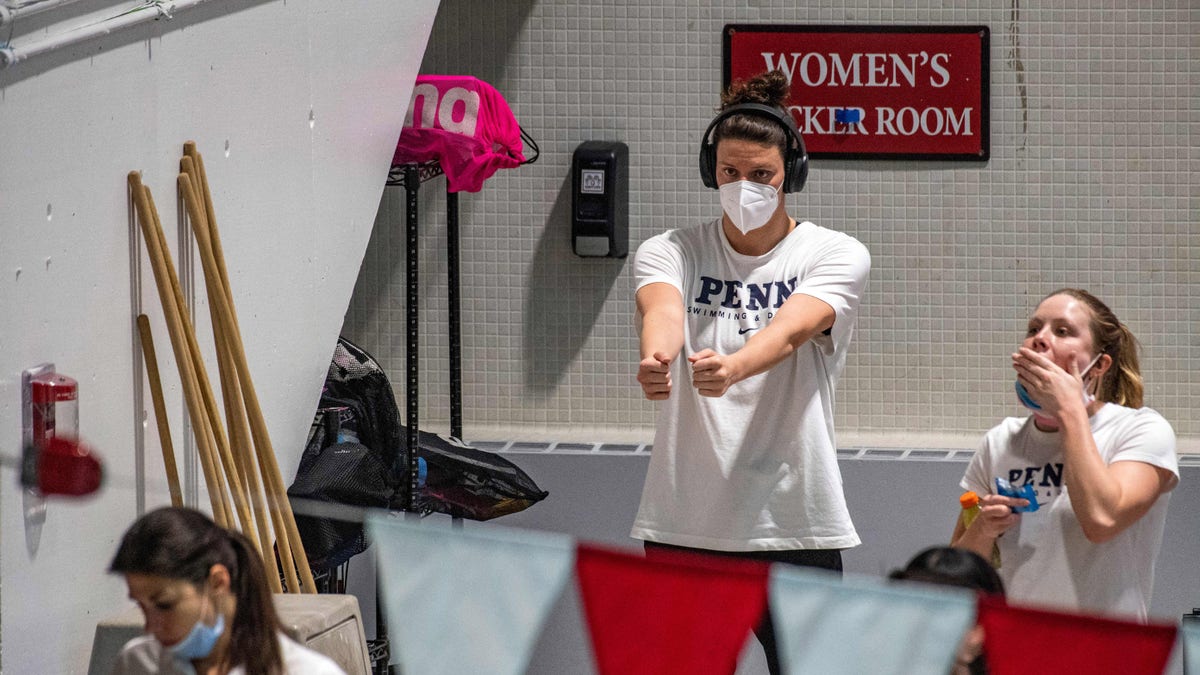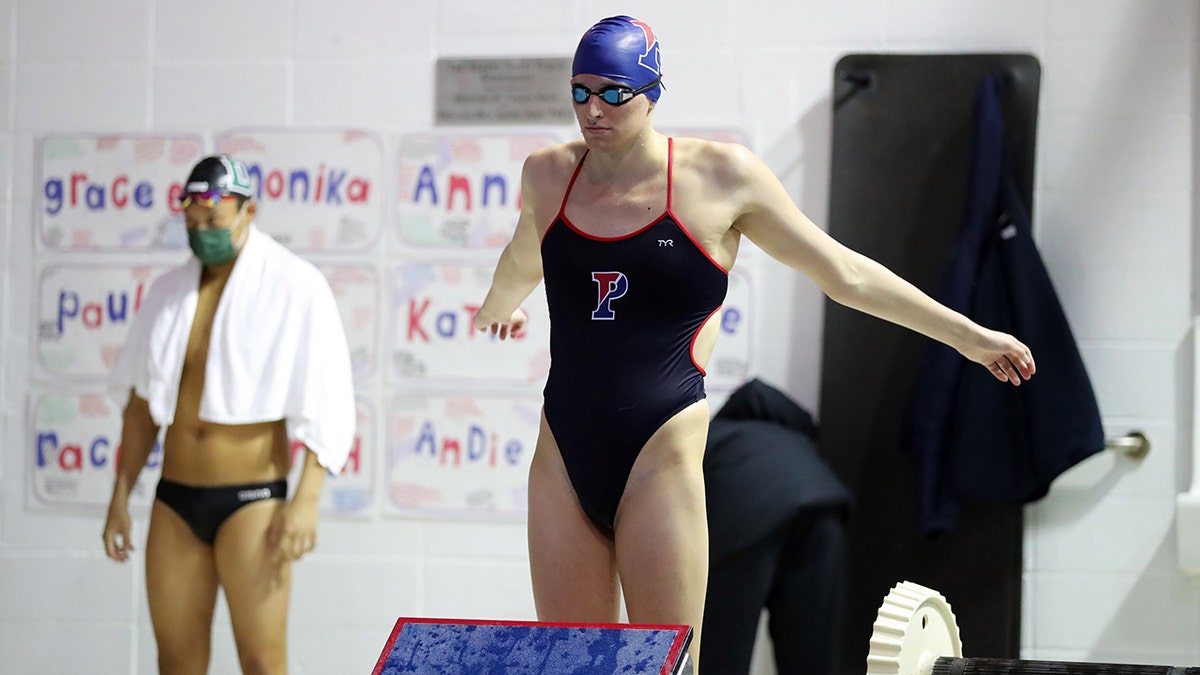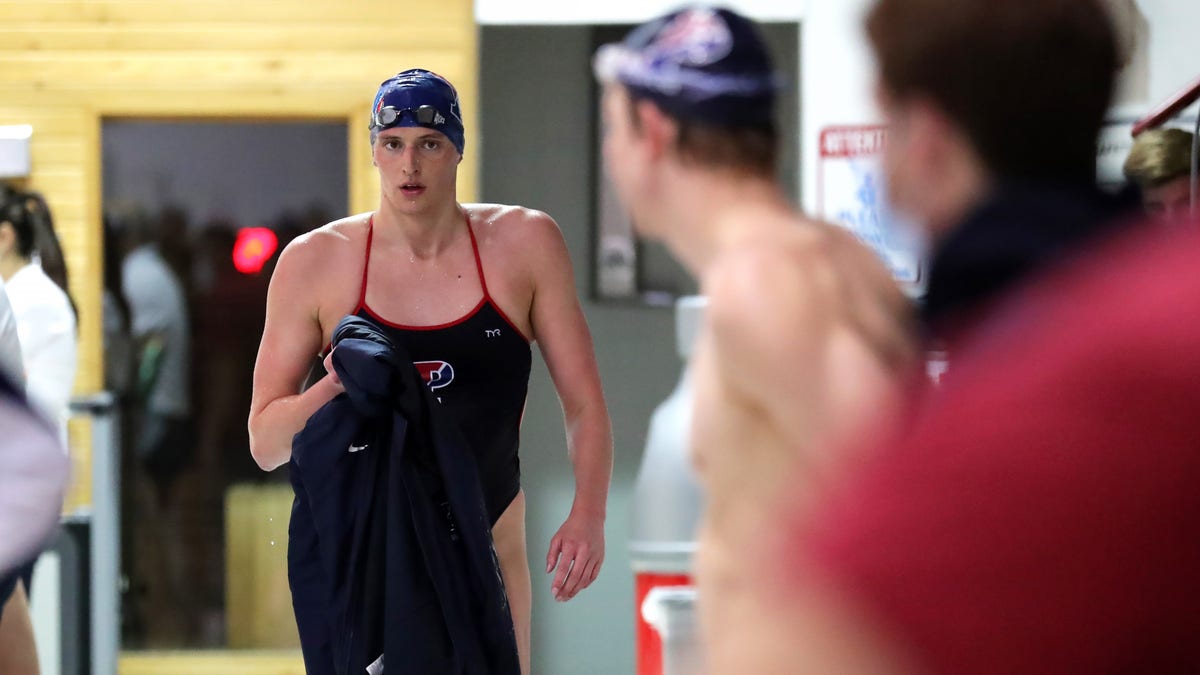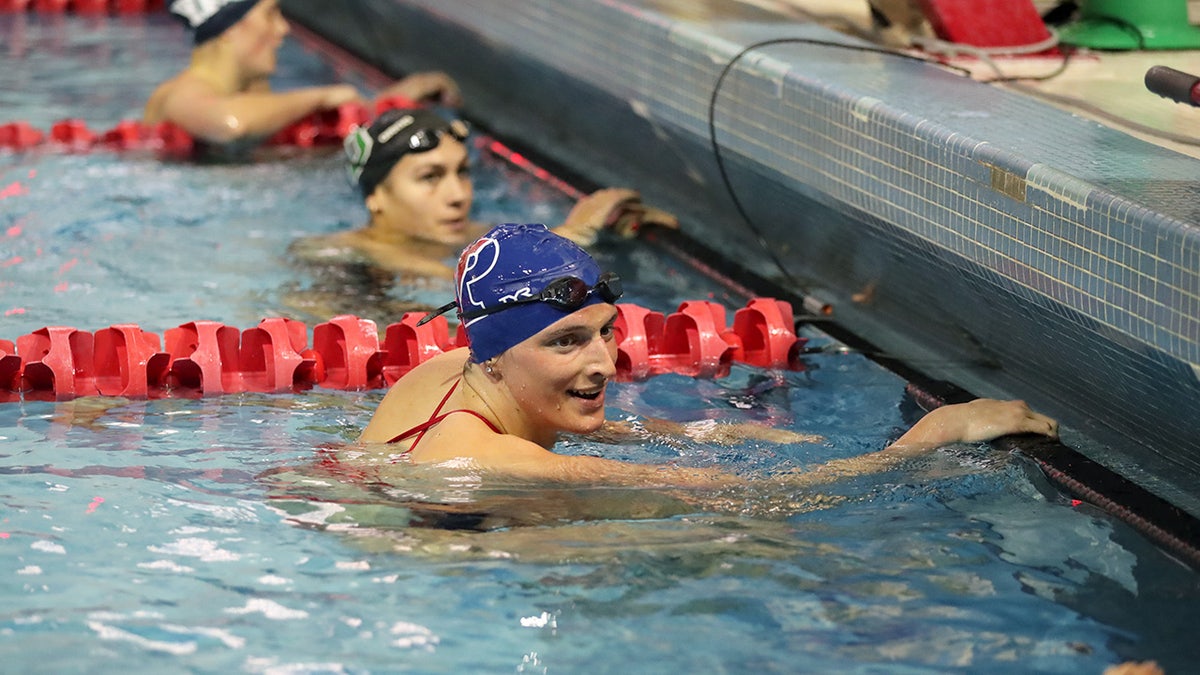Fox News Flash top headlines for January 27
Fox News Flash top headlines are here. Check out what's clicking on Foxnews.com.
EXCLUSIVE: A swimmer on the University of Pennsylvania women’s team says she feels the school’s decision to allow transgender swimmer Lia Thomas to compete has created an unfair balance within the sport that prioritizes Thomas' rights over that of biological female student-athletes.
The student, who spoke to Fox News Digital on the condition of anonymity out of fear of retribution, said she was "hopeful" after learning of the NCAA’s decision last week to update its policy of allowing transgender athletes to compete based on hormone levels.
"I'm a little bit more hopeful because I think that, at least as swimmers, we kind of realize that it's not just testosterone levels," she told Fox News. "It's testosterone levels from the last 20 years and how that affected, you know, the fact that [Thomas] went through male puberty and the way that built her heart and lungs and her hands and the way she circulates blood and the lactic acid and all that stuff."
"Stuff that – it's not just the difference between two girls and how one might have slightly larger lungs and that gives them a slight advantage," she continued, "These are monumental advantages that biological males just develop through puberty, and it's not something that a year of [hormone treatments] can suppress because they still have all the muscle mass they had from the last 20 years."
The new approach to allowing transgender athletes to compete will follow a sport-by-sport model similarly adopted by the U.S. and International Olympic committees. The new NCAA policy, which takes effect starting with the 2022 NCAA Winter Championships, means swimming athletes will be governed by USA Swimming policies.

Lia Thomas, a transgender woman, warms up before swimming for the University of Pennsylvania at an Ivy League meet against Harvard University in Cambridge, Massachusetts, on Jan. 22, 2022. (JOSEPH PREZIOSO/AFP via Getty Images)
USA Swimming uses an eligibility review panel to make a decision on transgender athletes’ eligibility. Elite swimmers would be up to FINA and IOC policies.
USA Swimming released a statement last week following the NCAA's announcement of its updated transgender participation policy. The organization said it is still awaiting new directives from the International Swimming Federation (FINA) concerning trans athlete participation.
"USA Swimming firmly believes in inclusivity and the opportunity for all athletes to experience the sport of swimming in a manner that is consistent with their gender identity and expression. We also strongly believe in competitive equity, and, like many, are doing our best to learn and educate ourselves on the appropriate balance in this space," the organization said.
"In 2018, we established athlete inclusion procedures, which included both a process by which an athlete could change their competition category consistent with their gender identity and criteria for athletes qualifying for or competing in elite-level competitions (including those competition time qualifications such as Juniors, Nationals and U.S. Open), which adhered to previous International Olympic Committee guidelines. This policy also importantly provides for individual athlete consideration.
"The non-elite athlete inclusion procedures remain unchanged. Following broad transgender policy changes in Nov. 2021, the IOC now requires International Federations to create their own sport-specific eligibility requirements, and so we have been proactively working with FINA for several months to help shape and support their policy development efforts. We believe they will release a new policy shortly, which we will adopt for elite-level competitions.
"USA Swimming is a member-driven organization governed by a 15-member Board of Directors, which oversees more than 360,000 members–including coaches, volunteers and over 325,000 athletes from age-group level to the Olympic Team. These individuals and 2,800 member clubs participate through a network of 59 Local Swimming Committees (LSCs) in four geographic Zones across the U.S. With the NCAA now deferring to USA Swimming for eligibility determinations, we welcome and look forward to American NCAA athletes and coaches joining our membership in order to be eligible to be governed by our policy and its provisions and benefits."
The IOC updated its transgender participation policy in November 2021, refraining from the focus on testosterone levels to determine eligibility, according to The Washington Post. The IOC urged the governing bodies of each individual sport to create the rules while offering assistance.

Lia Thomas of the Pennsylvania Quakers gets ready to compete in a freestyle event during a tri-meet against the Yale Bulldogs and the Dartmouth Big Green at Sheerr Pool on the campus of the University of Pennsylvania on Jan. 8, 2022, in Philadelphia, Pennsylvania. (Hunter Martin/Getty Images)
"Every athlete has the right to practice sport without discrimination and in a way that respects their health, safety and dignity," the updated rules stated. "At the same time the credibility of competitive sport — and particularly high-level sporting competitions — relies on a level playing field where no athlete has an unfair or disproportionate advantage over the rest."
USA Swimming didn't immediately respond to Fox News' request for comment on whether Thomas would be eligible for the NCAA Championships.
The anonymous Penn swimmer also alleged that if Thomas, who is qualified to compete at the 2022 NCAA swimming and diving championships in Atlanta in March, is unable to compete under the new guidelines, a lawsuit could be filed.
"I have a feeling that if USA Swimming changes their rules, they will be filing a lawsuit for Lia to swim, but they wouldn't do that for us," she said. "That’s just really upsetting."
The student told Fox News that she does not know if the university itself or if Penn athletics would file the lawsuit but said she "heard that from some of the administrators."
The NCAA policy previously required trans women athletes to undergo at least a year of testosterone suppression treatment before competing on a women’s team.
The updated policy for the NCAA says that, by March, "Transgender student-athletes will need to document sport-specific testosterone levels beginning four weeks before their sport's championship selections. Starting with the 2022-23 academic year, transgender student-athletes will need documented levels at the beginning of their season and a second documentation six months after the first. They will also need documented testosterone levels four weeks before championship selections. Full implementation would begin with the 2023-24 academic year."

Lia Thomas of the Pennsylvania Quakers after winning the 500-meter freestyle event during a tri-meet against the Yale Bulldogs and the Dartmouth Big Green at Sheerr Pool on the campus of the University of Pennsylvania on Jan. 8, 2022, in Philadelphia. (Hunter Martin/Getty Images)
"They're just proving, once again, that they don't actually care about their women athletes," the swimmer said of the University of Pennsylvania. "They say that they care and that they're here for our emotions, but why do we have to be gracious losers? ... Who are you to tell me that I shouldn't want to win because I do want to win. I'm swimming. I'm dedicating more than 20 hours a week to the sport.
"Obviously, I want to win. You can't just tell me I should be happy with second place. I'm not. And these people in Penn's administrative department who just think that women should just roll over -- it's disturbing, and it's reminiscent of the 1970s when they were fighting for Title IX and stuff like that. They don't actually care about women at all.
CLICK HERE FOR MORE SPORTS COVERAGE ON FOXNEWS.COM
"Everyone sees us and everyone stands with us. It's just a matter of trying to convince USA Swimming to do the right thing."
The student said she was initially "shocked" and "disappointed" when the team was informed that Thomas would be competing with the women’s team after three years on the men’s team, but she more so expressed her frustrations with the university’s subsequent handling of the situation.
"Well, the administration didn't even discuss the topic with us until after Ohio (Zippy Invitational) and after we already started getting a ton of media attention. They did not address us or ask us how we were feeling. … It was so maddening, just crazy that they didn't have the foresight to talk to us sooner."
Penn Athletics didn't immediately respond to the swimmer's remarks on the assertion of the lawsuit or comments about the treatment of female athletes.
The student said that once the issue was addressed, the administration took the approach of "We’re here to support your feelings but not you."
"They are basically saying that Lia swimming is a non-negotiable," she said. "They weren’t willing to actually help us, they were just willing to brush it under the rug and be [say], ‘oh, your feelings are valid.’"
The student clarified that her concern does not lie with how Thomas chooses to identify.
CLICK HERE TO GET THE FOX NEWS APP
"I think we all want Lia to live her best life and live as herself and do that safely and in a way that she's comfortable, but you can do that, but then you can't impede other people's lives to the point where they no longer have the rights guaranteed to them by Title IX," she said.
The bigger issue is the message she says the university is putting out.

Lia Thomas of the Pennsylvania Quakers smiles after winning the 200-meter freestyle event during a tri-meet against the Yale Bulldogs and the Dartmouth Big Green at Sheerr Pool on the campus of the University of Pennsylvania on Jan. 8, 2022 in Philadelphia, Pennsylvania. (Hunter Martin/Getty Images)
"It's really easy for the media and the administration to just focus on Lia and all the things that are hurting her and how she needs compassion right now, but I think we're the ones who truly need compassion right now, and we're the ones who are just being overlooked and told to just suck it up and deal with it and to accept second place. I think it's wrong," she said.
"When we came here, we were told we were going to have equal opportunities, and it just seems like our administrators and parts of society, very small parts, because I believe most people know it's wrong, but that those people just think that we shouldn't care about winning. And that's wrong. You know, what message are you telling little girls? You're telling them that they shouldn't strive for first place, that they should be OK with second."
UPenn will compete in its final regular-season meet Saturday at West Chester University.
The Ivy League Championships begin next month on Feb. 16-18, followed by the Eastern College Athletic Conference Championships on Feb. 24-27.
Fox News’ Ryan Gaydos and Jessica Chasmar contributed to this report.










































